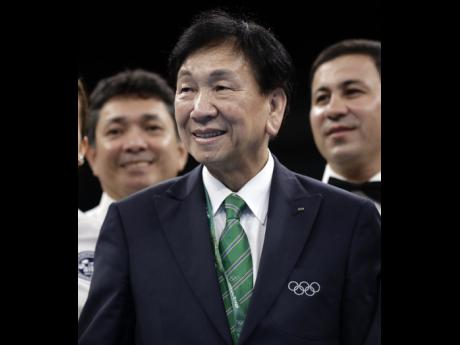AIBA makes major statute changes at Dubai congress
Major changes in the statutes of the International Boxing Association (AIBA), which are designed to provide more checks and balances, transparency, and better governance, were approved by the over 100 delegates who attended an extraordinary congress in Dubai on January 27.
Delegates from 105 nations (including Jamaica), drawn from all the continents, approved some far-reaching decisions, which are designed to ensure that there is better allocation of powers and more collaboration between the president and AIBA's executive committee, so that many problems over the past year, which put the association in serious financial jeopardy, will not occur again.
The powers of the president have been curtailed, new financial regulations have been put in place, and AIBA's executive committee has been given more oversight responsibilities. In the future, for example, most of the decisions that are made by the president must now be ratified by the executive committee. It was also agreed, that the composition of the executive committee, will be changed at the next ordinary congress in November.
What led up to the decision to curtail the powers of the president,was the fact that over the past year, AIBA has been in financial turmoil. The then president, Dr Ching-Kuo Wu, was said to have made financial decisions which negatively impacted AIBA without the knowledge or consent of the executive committee. The eventual fallout was that after months of debate and legal interventions, Dr Wu resigned as president in November last year. In keeping with the statutes, the longest-serving vice-president Franco Falcinelli, who is also the president of the European Boxing Confederation (EUBC), took over as interim president.
WORK TO DO
Under Falcinelli's guidance, steps were taken to normalise the financial situation, make deals that would stabilise AIBA financially, and chart a course for the future. There has been some success, but AIBA still has a lot of work to do, as the International Olympic Committee has curtailed its financial support for the time being, a decision that AIBA is working hard to have reversed.
Two other important decisions that were confirmed at the congress had to do with more female representation in AIBA and its stance on non-AIBA professional boxing. AIBA has, over the years, sought to have more female representation. The statutes were therefore revised to require that the executive committee members from each continent, when elections are next held.
When AIBA introduced its own professional boxing league some years ago, members of national federations were not allowed to be affiliated to any non-AIBA boxing association or participate in non-AIBA professional boxing, beyond a certain date without permission from AIBA. This has been changed, and a national federation can now be affiliated to and recognised by a non-AIBA professional organisation if this is approved by AIBA's executive committee. A member cannot, however, be elected to the executive committee of AIBA or a continental association if that member holds a position in any non-AIBA professional boxing organisation.

